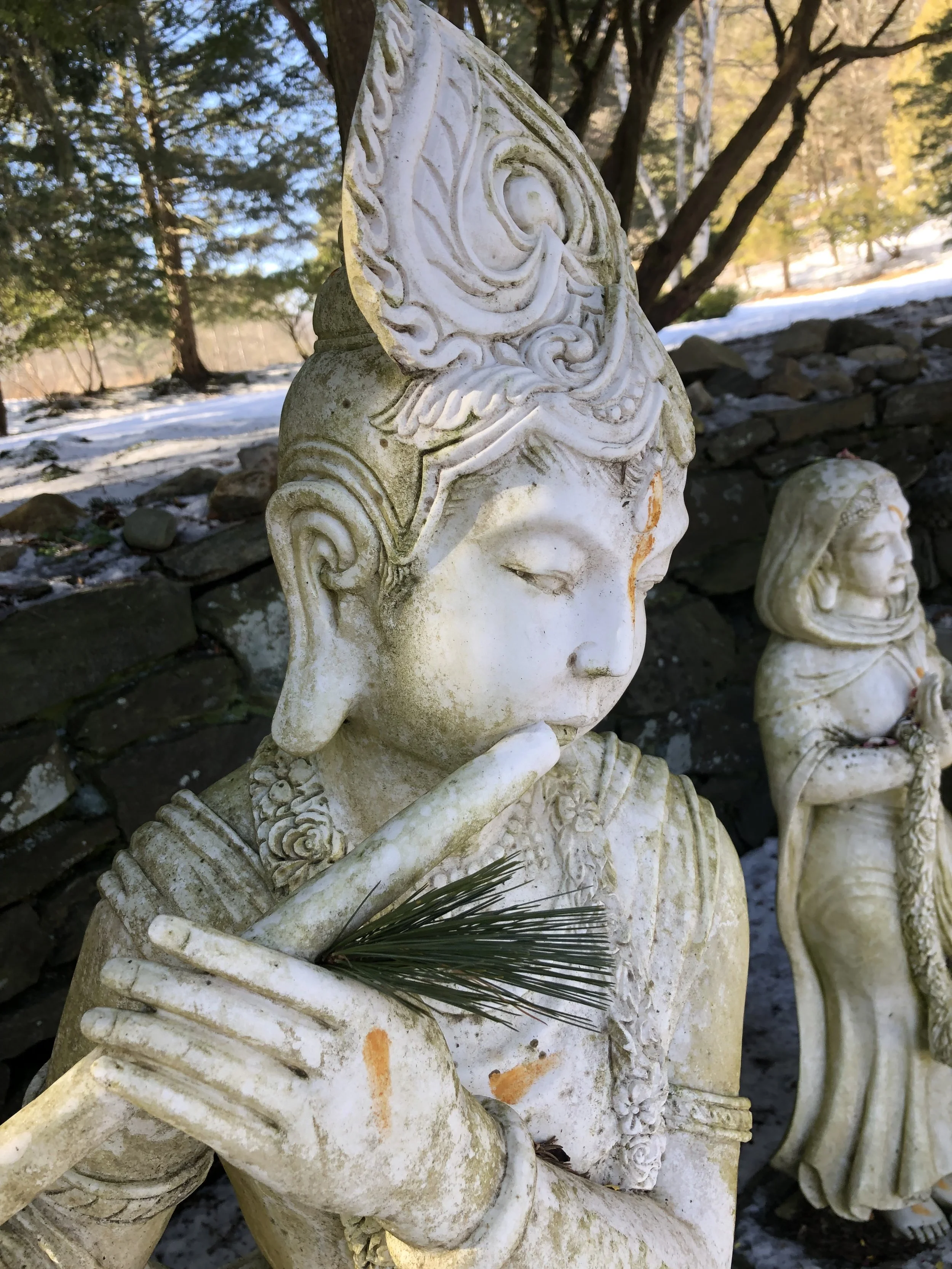The Maha Mantra
One of the first yoga conferences I attended it was in 2005 in Cologne, Germany. There were intensive workshops all day in many styles of yoga. There was also and an interesting yoga marketplace where we could browse all the new yoga products in the market.
In the evening, there was an optional “Kirtan” event, I was told it is the chanting of yoga mantras. This was my very first Kirtan experience, and the singers were the amazing: “Satya and Pari,” whose music still I listen to, and I have played it over the years in my classes. Pari made an introduction to newcomers as to what kirtan is and said “have fun, let loose, and do not worry if you think you do not have a good voice. Sing from the heart and see what happens.” And this is exactly what I did, it was fun, people got up and started dancing, I was smiling and singing with my new yoga friend Patricia, when, at some point, I felt tears coming down my cheeks. I had no idea what was going on. Pari had said earlier that the repetition of the mantras can activate the Chakras and can help us cleanse and heal.
Is this what it is happening? I asked myself. I got no answer at the moment but that happy song that made me cry while I was smiling, became my favorite and it was playing from my iPod for years in my classes. One day, my iPod died, I tried but I couldn’t recover it. I then played different music with whatever CDs I had at the time. Over the time, I forgot about that song. A lot of times, after class, students would come and ask me what the meaning of the songs are but I couldn’t give an answer since I had no knowledge in Sanskrit.
Many years later I am participating in a kirtan night at the temple. We are singing the “Maha Mantra”: Hare Krishna, Hare Krishna, Krishna Krishna, Hare Hare, Hare Rama, Hare Rama, Rama Rama, Hare Hare. It is not the first time, I’ve been doing it for a few months now, but this evening, tears are coming down again without knowing why. Then, I remembered that this was the same song I was singing that night in the yoga conference in 2005.
Mantras are powerful, and in one of my classes with Jennifer Reis, I learnt that the sounds of the letters of the Sanskrit alphabet resonate with the petals of the chakras in our bodies. Mantras can be very healing, they can have an impact on a mind, body and soul level. But this is the Maha Mantra. Maha in Sanskrit means Great, the Great Mantra.
What is the Great Mantra and why we can get emotional as we recite it? I got to ask all these questions to my friend Wesley
What is a Mantra?
A mantra sets your mind free from what is disturbing it. One definition explains that “man” means “mind,” and “tra” is a verbal root that means “to set free.” Just as a joke is a group of words with the goal to make you laugh, a mantra is a group of words with the goal to set your mind free.
What is the meaning of the Maha Mantra?
One meaning of the maha-mantra explains that we are calling out for help. we are here in the material world going through birth, death, old age, and disease and we are calling out for help from those who do not have to go through the pains we go through. Specifically, the mantra is a plea to Krishna and Radha, the Divine Couple, to help you realize the way by which you can stop being born in this temporary world and return to your permanent home - a home free of miseries and disturbances. A home of bliss, knowledge, and eternality.
What is the origin of the Mantra?
The mantra has been described in one of the Upanishads and made popular by Caitanya Mahaprabhu who lived in India in the 15th century.
What are the benefits of chanting the Hare Krishna Mantra?
Through chanting the mantra, you come across a direct realization of the divinity of Radha and Krishna, the divine couple. According to Vaishnava scholars, there is no difference between the name “Krishna” and the sound “Krishna,” so when you chant Hare Krishna, you are coming into a direct transcendental contact with the divinities Radha and Krishna.
Why we have to chant the mantra in Kaliyuga Era?
Kali Yuga is described as the age of hypocrisy. Our intelligence is limited and our life span is shorter. There is not much time to study all the Vedas and their accompanying commentaries, and even if we had the time, it would take extra time to synthesize all Vedic knowledge into proper transcendental realization. According to Vaishnava scholars, by chanting the Hare Krishna mantra, you understand the essence of studying the Vedas. It was a practical realization of self-knowledge for your ultimate transcendental benefit.
About the Author
Wesley De Sena
At an early age, Wesley enrolled in a Seminary of Vedic Philosophy and Theology where he studied the bhakti literature of classical India. His interest in Sanskrit language and literature has only deepened since then. Currently, he pursues related academic studies at Harvard University.


